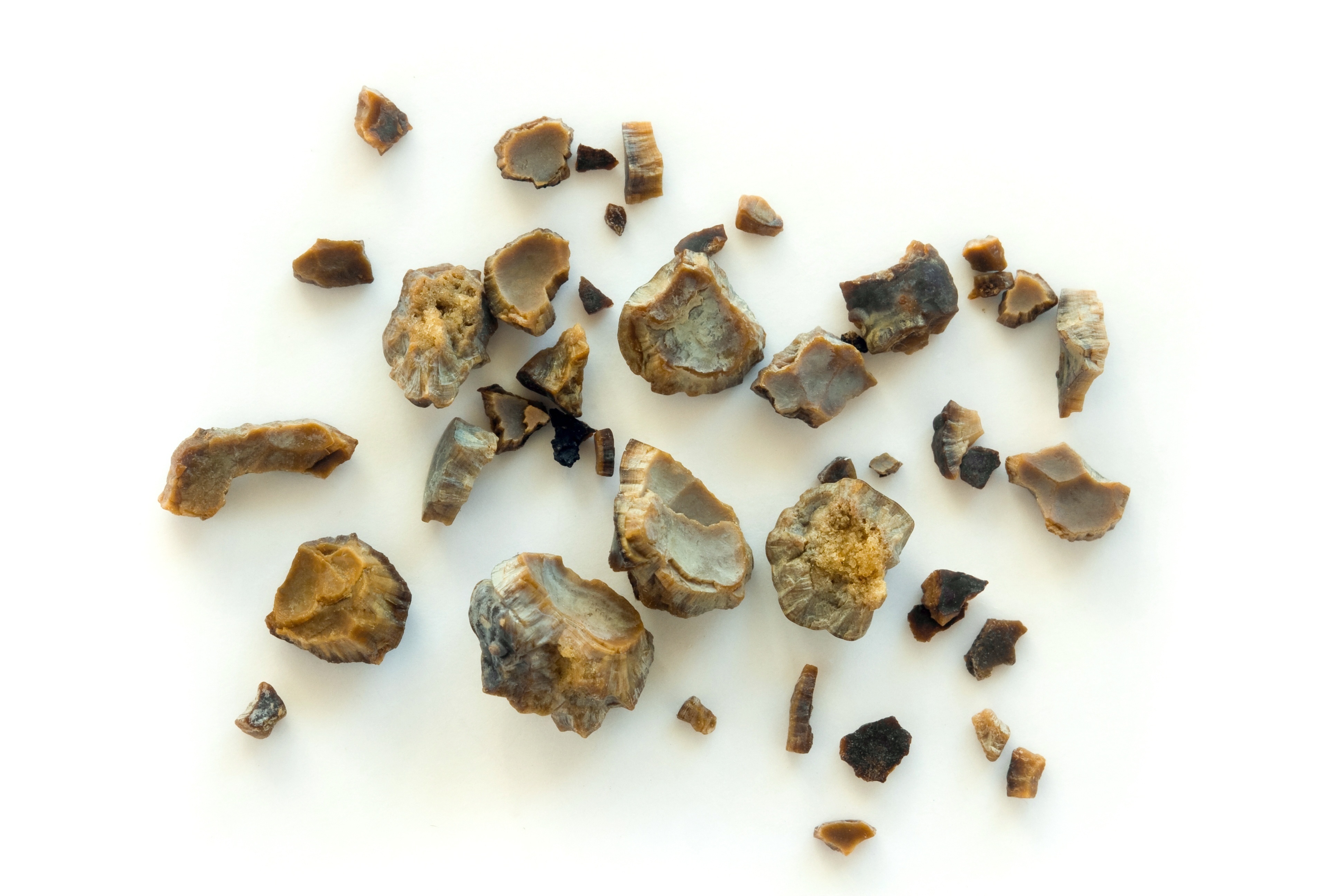Kidney Stone Clinic

With whom?
With whom?You used to see kidney stones primarily in the 30-60s age group. Nowadays, we also see more young adolescents and over-60s with kidney stones.
Kidney stones occur in up to 14% of adult men and 8% of women.
Cause and prevention
Cause and preventionAn unbalanced diet causes 85% of kidney stones. Adjusting certain habits can greatly reduce the number of kidney stones.
That is why we work very closely with the dietitian who specialises in this. Every patient is different. So a customised diet is important.
Some general guidelines:
- Maintain a healthy diet (many fruit and vegetables, little meat, with as few sugars as possible)
- Drink a lot (two to three litres a day):
- Specific kinds of bottled water, tea, etc.
- Unsweetened drinks
Kidney stone analysis in specialised laboratory
Kidney stone analysis in specialised laboratoryProper analysis, treatment and follow-upof kidney stones is important.
To find out which type of kidney stone you are dealing with, it is important to send them to a specialised laboratory. Poor nutrition is often at the root, but hereditary or metabolic disorders can also play a role.
Important:
Before coming in for a consultation, you will need to do the following throughyourGP:
- have the stone analysed in a specialised lab
- have a proper biochemical evaluation done.
Your GP can request the correct application forms from the secretariat of the nephrology and urology departments.


